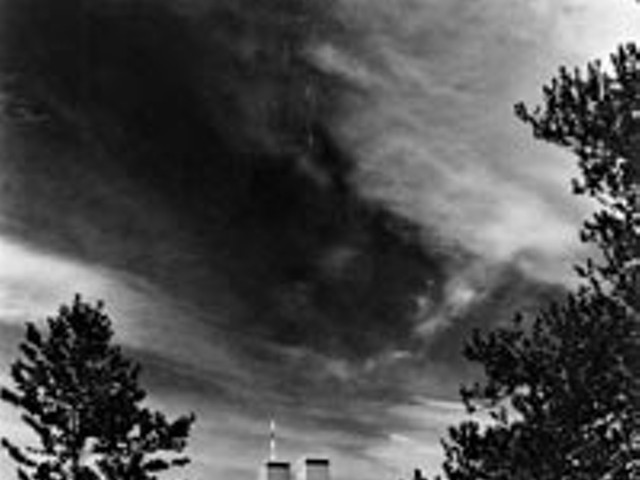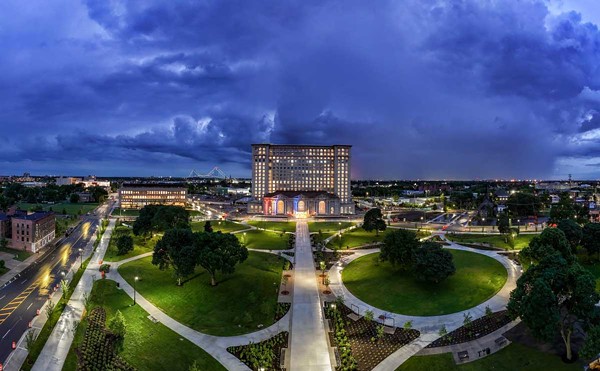A half hour after the second plane sliced through the glass-curtained tower, I went south to the Mexican line and stopped watching what I already felt in my bones. The mesquites were in leaf after the summer rains, the hills green, and when I arrived at the ranch four miles from the border there was silence.
To the south, I could see the smugglers passes about two miles away where the constant drug caravans passed and the endless stream of illegal Mexicans marching north. I sat on the porch with a cup of coffee as the 3,000 were vaporized in New York or Washington or that Pennsylvania field.
For days I glanced at the television from time to time but hardly talked to anyone. I waited for the follow-up attacks that never came and marveled at the messages written in gore. All the targets were symbolic and barely scratched the industrial humming of the nation’s mills and markets. I realized this wasn’t a war but a kind of brutal poem written by fantastic minds. Six weeks later I was in New York at ground zero with a photographer. He chased ghosts down the side streets near the hole. A block away Alexander Hamilton, the architect of American dreams of economic empire, slept undisturbed in his grave. What I noticed were all the tourists at the hole: they all looked up, heads tilted as if at the Fourth of July, all looked up at nothing at all. At night I sat with a bottle of wine on the abandoned terrace of my hotel as the sour smell of rot crept up over Manhattan.
In time I stopped reading the press on 9/11 as both the left and the right poured new wine into old ideological bottles. The right talked war against an adversary that lived in caves and did not even bother to claim credit for the feat. The left talked about poverty and imperialism and seemed to skip over the fact that the planes were commanded by college graduates who knew our ways and our topless joints.
And then I stopped listening to people, also. The talk of fear left me blank since I did not share it. The talk of anger and the plastering of flags seemed natural but led to nothing. The talk of evil sounded nice in a pulpit but suggested nothing as a strategy unless one were Cotton Mather manning the bench at the Salem witch trials.
Now it is the one-year anniversary and everyone will tell me what it means. But I think I always kind of knew. We can’t stop it. And they can’t destroy us. There is a price for being anyone and part of our price is living with an overflowing refrigerator and a bull’s-eye on our foreheads. For almost a decade, I’ve followed the thousands of murders and the general barbarism on the US/Mexico border and one thought kept floating through my head: a slow train a’coming. On Sept. 11 I thought I finally heard a whistle blow. I told myself I was hearing things, that what happened on my turf told me nothing about the anger flowing from Kabul or Cairo or Saudi Arabia. Still, that is what I heard and thought, that they won’t tolerate being part of lost and defeated nations forever, that they won’t go smilingly as losers to their lonely graves. Slow train a’coming.
Bowden’s book, Down by the River: Drugs, Money, Murder and Family (Simon & Schuster) will be published in October.
Continue reflecting with When darkness swallows the sun by Barry Graham or our cover story One year later





